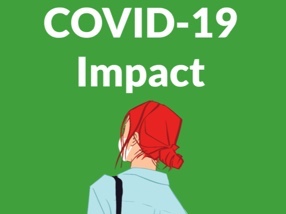1. Crisis Marketing

How should we react as marketers?
With the global corona virus crisis engulfing us, it is hard for brand owners and marketers to know where to begin.
The natural reaction during these unprecedented times is to revert to survival mode, focusing on cutting costs, battening down the hatches and just hoping to still be in one piece both personally and business wise at the end of the crisis. However now is the time to be proactive, think long term, keep building brands, protecting stakeholders (internal and external) and honouring values.
With the world in various different states of lock down, people scared for both their physical and financial health we are seeing rapid changes in attitudes and behaviour. How brands are reacting to these changes are being highly scrutinised and will be critical to their financial well-being when we eventually come out the other side. Get it right and they could receive a massive boost, get it wrong and there is a high probability customer will not forgive them.
Co-founder of brand purpose agency Verity London, Debra Sobel, believes that with trust in politicians at an all-time low that consumers are increasingly looking to companies to solve societal issues. A global crisis means those brands have to dig deep, says Sobel: “There are winners and losers, and the intelligent brands, the competitive brands, are the ones that realise they need to activate their purpose now. “They need to communicate effectively and be authentic. In the long term they will gain.”
Over the course of a series of blogs we will look at the impact the corona virus is having on the marketing landscape and how marketers are adapting their thinking to cope with it.
What not to do. Which brands have been seen to have got it wrong so far?
In this first piece we will look at what not to do.
First and foremost, do not exploit the situation. Brands and suppliers / retailers that are seen to be profiteering from the crisis will be looked at in a very poor light. So, whatever the temptation avoid the basic principle of pricing around supply and demand on this occasion. Locally we have already seen basic staples plus important health care aids being priced exorbitantly at retail level.
Clean Shelf supermarket chain have already been exposed for exactly that with Hand Sanitiser and reprimanded by their customers and trading standards. In a highly competitive retail environment where do you think people will show their loyalty once things return to normal?
Equally dangerous could be action that leaves brands looking uncaring and self-serving. A few international examples of companies that have it got it wrong so far are Virgin Atlantic, Sports Direct (sports clothing retailer in the UK) and one very close to my own heart Liverpool Football Club.
Virgin Atlantic who have a self-styled identity as the “fun, friendly, fabulous choice that made travel attainable for everyone” were deemed by the public to have behaved in a manner that was at odds with that brand identity when they were one of the first airlines to drastically cut flights, back in March.
They then added to their reputation issues by seeking a £7.5mn bailout from the UK government. Consumers shared their frustrations on social media that a group that has previously successfully sued the NHS and owned by a high-profile billionaire should be in their view trying to divert funds from an ailing National Health Service at this crucial time in favour of their own bottom line.
Likewise, Sports Direct and particularly their owner Mike Ashley came in for huge criticism when they tried to claim that their stores were providing essentials and therefore could remain open during the lock down. The public obviously saw straight through this and they were pilloried on social media as trying to profiteer during the crisis and discouraging people from staying at home during this crucial time.
Liverpool Football Club which likes to position itself as the corner stone of the local working-class community scored a massive own-goal when they chose to ‘furlough’ their non playing work force. This effectively meant that they took advantage of the governments offer to pay for 80% of staff wages during the crisis whilst Liverpool would make up the remaining 20%. However as was pointed out by a considerable portion of the club’s supporters this government scheme was meant to support small to medium sized business owners in this time of crisis and not multimillion-pound international businesses owned by billionaire American owners.
Fortunately, Liverpool listened to the weight of public outcry from their own stakeholders and reversed their decision. Whether it was quick enough to have prevented significant damage to their brand equity, that they had so successfully rebuilt in the last five years only time will tell.
Think long term, build brand equity through living your brand values
The key message coming out of these various local and international examples is that brands and companies must resist the temptation to act in a short-sighted manner and make decisions that negatively impact their key stakeholders and their brand image. At this time of crisis, they must more than ever be seen to be caring and protective of their employees and customers and live by their brand values, because it will be remembered.
“No one sees how much you do for them; they only see what you don’t”.

